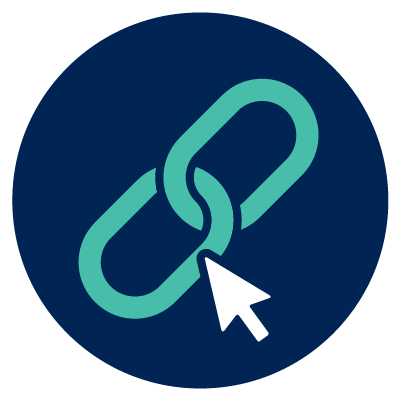Making changes in your workplace
You can work with your employer to make changes in the workplace to support you to do your job. These types of changes are called ‘reasonable adjustments’.
What are reasonable adjustments?
Reasonable adjustments help give people with disability fair access to employment. They are also called workplace adjustments or workplace modifications.
In the workplace, this might include:
- physical changes to your work area and workplace
- equipment or services
- changes to tasks or the way you work.
You might find even simple changes will meet your needs. By law your employer must take your disability into account and make changes to support you.
Examples of changes
Changes to work areas and workplaces
Examples of physical changes include:
- a desk you can change the height of, for example to fit a wheelchair underneath
- a parking space close to the workplace entrance
- better lighting if you have vision impairment
- moving a desk or using screens to reduce noise and distractions
- more accessible toilets.
Equipment, technology and services
Equipment or services might include:
- lifting equipment to help you safely lift heavy objects
- assistive technology like screen reading software
- Auslan interpreters to support you in training sessions if you are Deaf or have hearing loss.
Changes to work methods
You might find it helpful to make changes to the way you work or create tools that will support you.
For example:
- if you need support with memory, you could work with your employer to create written instructions, task lists, labels, prompts or reminders
- if you need support with organising your time, talk to your employer about creating clear daily routines
- if you have anxiety, you might ask for the option to share your ideas by email instead of in large team meetings.
For some people, a change to work hours or start and finish times can help. Learn more about other types of flexible working arrangements.
Changes to tasks
Your job might include some tasks that you can’t do or can’t do fully because of a disability or health condition. Discuss with your employer ways you might modify your work tasks to suit your strengths and how these might change over time.
One way to change tasks is to swap some of them with a co-worker. For example, if you have a back injury, you could swap lifting and carrying duties with tasks you can do at your desk.
If you have an Inclusive Employment Australia provider, they can also help you and your employer to support you in the workplace. Find out more about how Inclusive Employment Australia can help.
Talking to your employer about workplace changes
If you know that you need workplace adjustments, talk with your employer about your needs and ideas. If you don’t feel confident doing this alone, ask someone to support you. For example:
- a co-worker
- your Inclusive Employment Australia provider
- human resources staff.
If you or your employer would like more information about workplace adjustments, you can contact one of our JobAccess Advisers.
Financial help with changing the workplace
You may be able to get funding to cover the costs of changes to the workplace through the Employment Assistance Fund (EAF). You can also apply for a free workplace assessment to help decide what adjustments you need. For all the details, go to Funding for changes in the workplace.
Useful Downloads
Related pages
Last updated:
Making her mark
Like many of us, Fiona Demark leads a full life - she works full-time, raises two teenage children, manages her own life coaching business, and even finds time for thrill-seeking on weekends.

Employer flexibility in the workplace
Go to videoMaking changes in your workplace
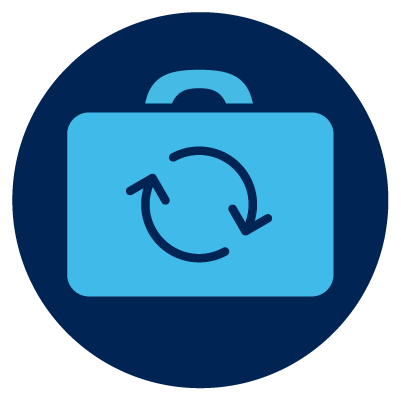
You can get support to change something about the place where you work so you can do your job better.
This includes:
- new equipment
- services and supports.
What are reasonable adjustments?
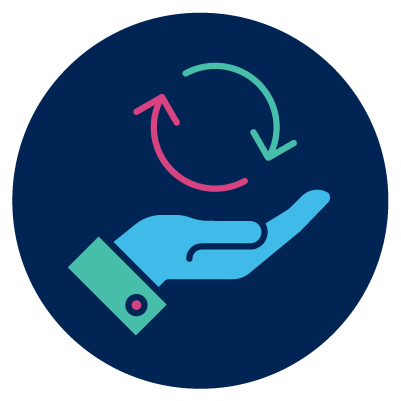
You can use A reasonable adjustment is when you ask to change something because of your disability. to change something about the place where you work.
Reasonable adjustments can support you to do your job better.
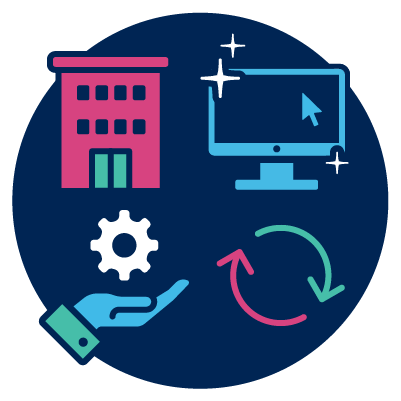
Reasonable adjustments in your A workplace is any place you might work, such as an office, factory or shop. might include:
- changing the area where you work to make it easier to use and move around
- new equipment
- services and supports
- changing your tasks or the way you work.
You might find you only need to change something simple.
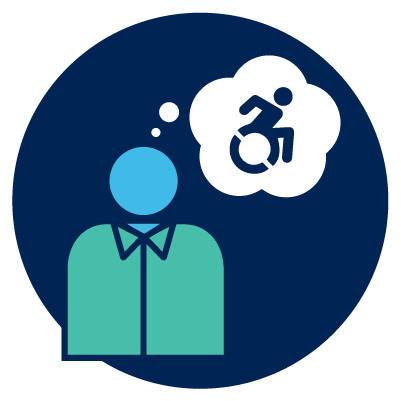
By law, your An employer hires people to work for them. must think about changing your workplace to support you.
Examples of what you can change
Your workplace
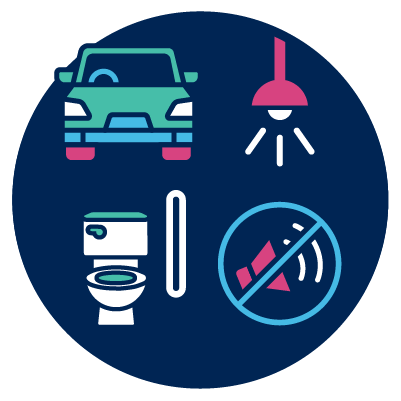
You can get reasonable adjustments for things in your workplace.
For example, you could get:
- a parking space closer to your work
- better lighting
- toilets everyone can use
- screens to block noise.
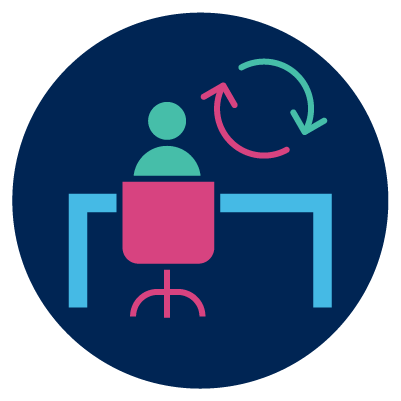
You could also change your desk, including:
- where it is
- its height.
Equipment and services

You can get reasonable adjustments for equipment and services.
For example:
- equipment to help you lift heavy objects
- Assistive technology is an aid or piece of equipment that supports you to work. like a screen reader.

You could also get an An Auslan interpreter is someone who uses Auslan to help you understand what someone says. if you’re deaf or hard of hearing.
The way you work
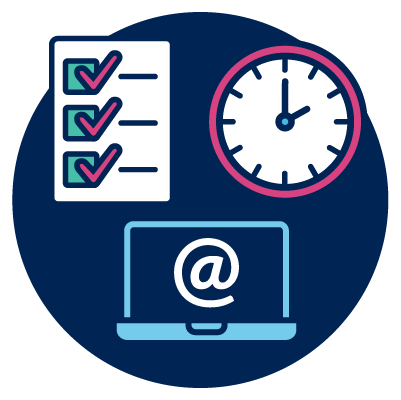
You can get reasonable adjustments to change the way you work.
For example, you can work with your employer to:
- support your memory, for example by creating lists or labels
- organise your time, for example by creating a list of what you’ll do each day
- share your ideas by email if you don’t want to talk in a large team meeting.
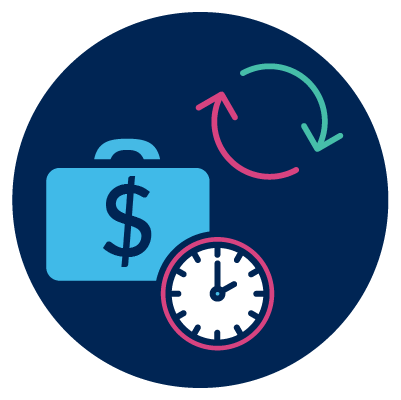
You might also want to change when you work, including:
- how long you work for
- when you start and finish.
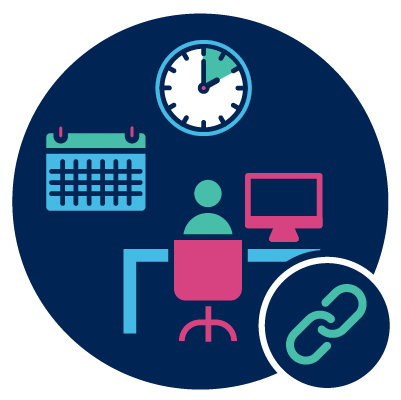
You can find out more on our page about flexible working arrangements.
Your tasks

There might be some parts of your job you can’t do.
You can work with your employer to change your tasks to suit your strengths.
This includes how your strengths could change over time.
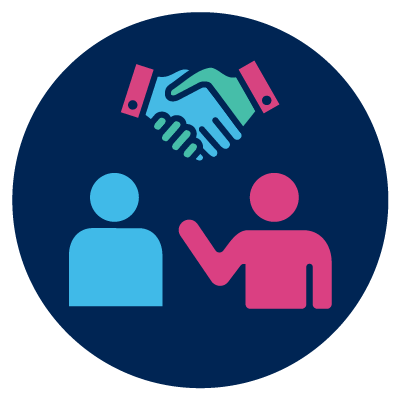
For example, you could swap some of your tasks with a co-worker.
They could lift and carry things while you do the work on the computer.
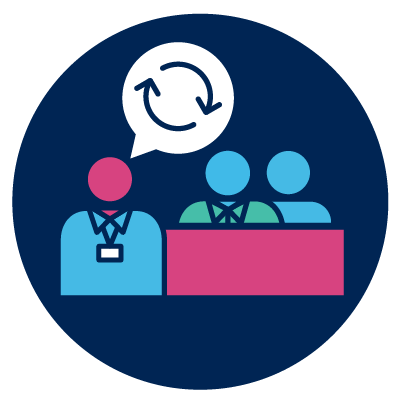
An Inclusive Employment Australia helps people with disability find and keep jobs. Inclusive Employment Australia providers deliver services to help people with disability do this. can also support you and your employer to make reasonable adjustments.
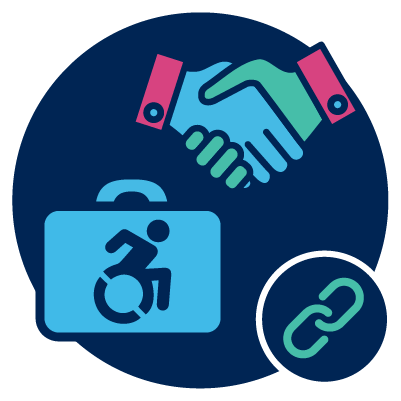
You can find out more on our page about how Inclusive Employment Australia can help.
Talking to your employer

You can tell your employer if you know you need reasonable adjustments.

Ask someone to support you if you don’t feel comfortable telling your employer by yourself.
For example:
- your co-worker
- your Inclusive Employment Australia provider
- human resources (HR). People who work in human resources support other people who work for that employer.
Support to cover the cost of reasonable adjustments
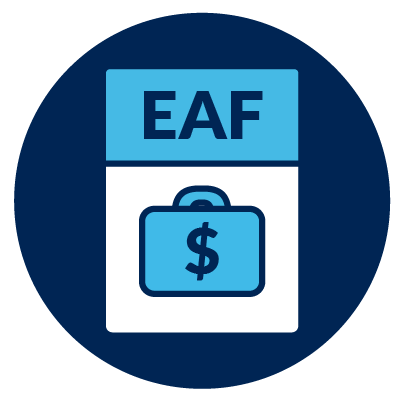
You can get support through the The EAF can cover the cost of supports and services so people with disability can do their job and get help with finding a job. to cover the cost of reasonable adjustments.

The EAF can organise for someone to come to your work and check what you need.
This is free.

You can find out more on our page about funding for changes in the workplace.


